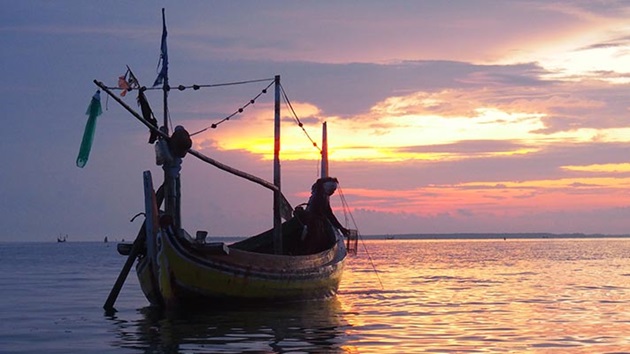Head of Fisheries Standard Accessibility Amanda Lejbowicz looks at how the MSC’s program to support fisheries working to become more sustainable has evolved over time.
 Crab fishing boat in Indonesia © Felix Sugianto
Crab fishing boat in Indonesia © Felix Sugianto
Why do fisheries need a Pathway to Sustainability and what does it involve?
We have been actively supporting fisheries on their path to sustainability since the MSC Fisheries Standard was first launched over twenty years ago. But we know some fisheries face significant obstacles in meeting our sustainability requirements, particularly small-scale fisheries and those in developing economies.
We realised early on that we needed to do more to support these fisheries and to make our Standard more accessible. In 2009 our first fishery improvement tool was launched – the MSC Pre-assessment Template. This marked the beginning of our pre-certification program, which would eventually become known as the Pathway to Sustainability.
The Pathway now includes a comprehensive suite of fishery improvement tools, supported by a global capacity building training program. Our tools and training materials are publicly available and can be used by both individual fisheries and multi-fishery, multi-stakeholder Pathway Projects to deliver effective fishery improvement projects (FIPs).

Squid fisher, South Africa. Fish For Good project © MSC
How can you ensure Fishery Improvement Projects (FIPS) are making progress?
Introducing our Pre-assessment Template opened the door for many fisheries to engage with our program for the first time. This led to a large increase in FIPs but also created a dilemma: there was no way to independently verify that improvements were making a difference on the water.
To resolve this, we introduced the In-Transition to MSC program in 2019. This provides a mechanism for FIPs to have their progress annually verified by an independent assessor and will ultimately help fisheries stay on track to achieve MSC certification within five years of entering the program.
Are other organisations involved in Pathway projects?
One of the cornerstones of the Pathway to Sustainability is collaboration. Fisheries worldwide can face considerable challenges in improving their practices, and we can’t solve these challenges alone.
Fisheries may struggle with a lack of data on catch and environmental impact, that makes it hard to show their practices are sustainable. A legal framework to monitor and enforce sustainable fisheries management may be weak or absent, particularly in developing economies where illegal, unreported, and unregulated practices may be common. By working with a wide range of stakeholders, from governments, fisheries and researchers to non-governmental organisations (NGOs) and supply chain actors, we create an enabling environment for a coordinated regional approach to improving fisheries management.
How does Pathway help the wider cause of sustainable fishing?
Working closely with governments is particularly important if we want to embed sustainability into fishing on a large scale.
One of the first Pathway Projects was established in Western Australia in 2012. It was led by the state government and supported by the MSC, the Western Australia Fishing Industry Council and community organisation Recfishwest. The government has since committed to supporting any of the state’s 50 commercial fisheries in achieving MSC certification. To date, nine of the 13 fisheries taking part in the Project are now MSC certified, with the Exmouth Gulf and Shark Bay prawn fisheries achieving re-certification in December 2020.
 Peel Harvey blue swimmer crab, Western Australia © Matt Watson/MSC
Peel Harvey blue swimmer crab, Western Australia © Matt Watson/MSC
Through the Fish for Good Pathway project, we have also established close ties with the Indonesia Ministry of Marine Affairs and Fisheries, signing a Memorandum of Understanding in 2019 that affirmed a joint commitment to strengthening collaboration on sustainable fishing. Government-led initiatives, like the Sustainable Grouper and Snapper Fishery Development Program are already showing progress, with over 60% of fishers in Salah Bay, West Nusa Tengarra switching to more sustainable fishing equipment since 2017.
How does the MSC make sure fishers have the skills needed to improve fishing practices?
What’s next for the Pathway to Sustainability?
How can the Pathway help improve outcomes for our oceans?
 Chart showing proportion of marine wild catch that is engaged with the MSC program up to March 2021
Chart showing proportion of marine wild catch that is engaged with the MSC program up to March 2021


